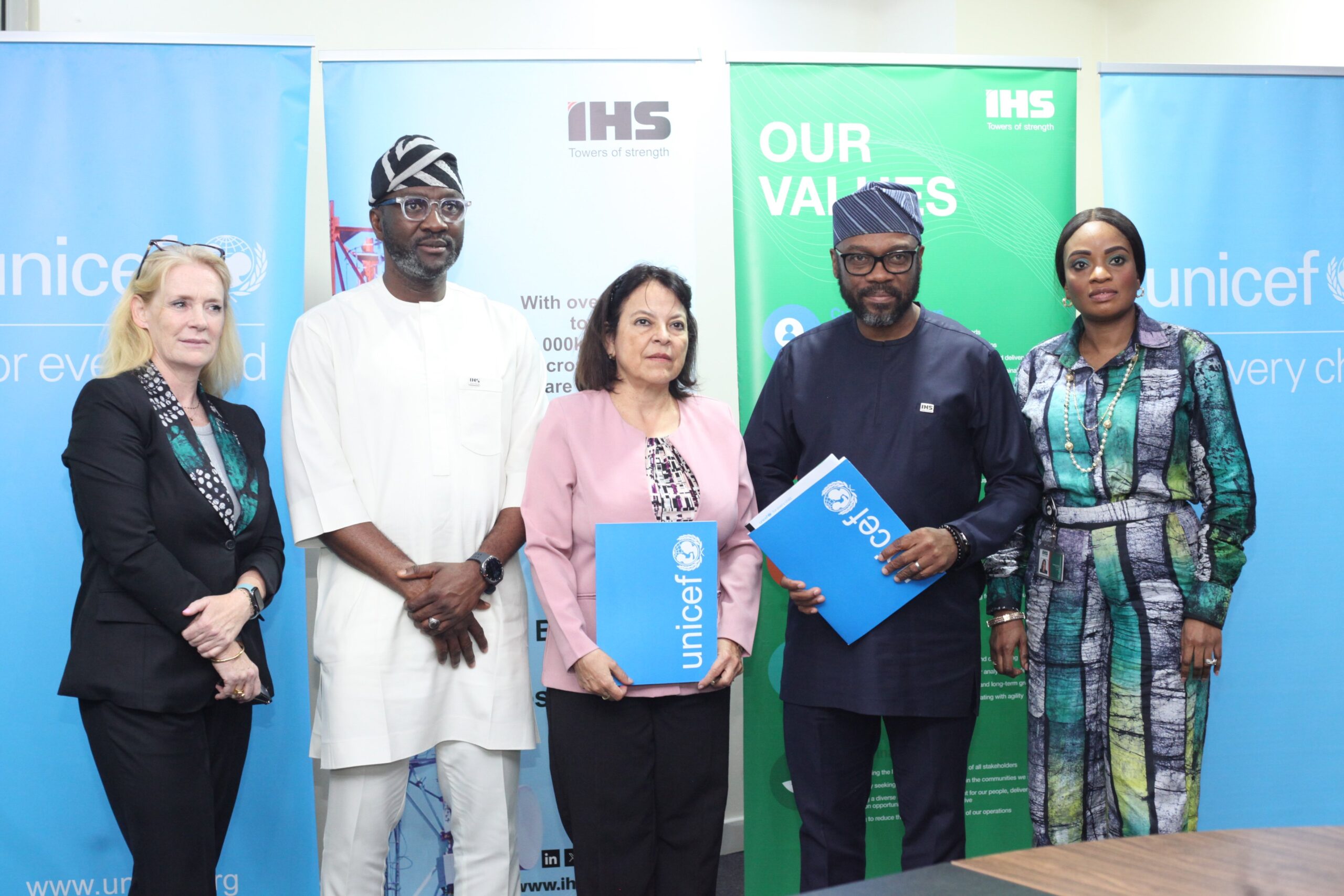In the wake of catastrophic floods that ravaged Mokwa Local Government Area in Niger State, UNICEF, together with IHS Nigeria, has launched an emergency response to support displaced families and rebuild critical infrastructure in affected communities.
The floods, which were triggered by heavy rainfall on May 29, 2025, struck five communities: Tiffin Maza, Ungwan Hausawa, Yagbagba, Ndayeko, and Wubegi. The human toll is devastating. Over 153 people were reported dead, hundreds remain missing and thousands more have been displaced. More than 2400 mothers and children are trapped in a desperate struggle for survival.
The floods also destroyed over 10,000 hectares of farmland, dealing a severe blow to local food security and livelihoods. Among the casualties were farmers who had invested heavily in the planting season, leaving entire households without income or sustenance.
In response, IHS Nigeria—a member of the IHS Towers group—has provided an emergency grant to UNICEF to fast-track relief interventions in the area. These aids will restore clean water, healthcare, and sanitation to the affected. The initiative includes the installation of three solar-powered boreholes, improved pit latrines, and the rehabilitation of a damaged primary healthcare centre.
“This emergency support from IHS Nigeria comes at a critical time when thousands of children and families are facing enormous hardship,” remarked Cristian Munduate, UNICEF Representative in Nigeria. “Our longstanding partnership with IHS Nigeria has always prioritised reaching the most vulnerable communities. Together, we have made strides in strengthening primary healthcare systems, education, and child protection. Today’s renewed collaboration ensures that the children of Mokwa are not left behind.”
UNICEF, leveraging its global leadership in WASH, Nutrition, Education, and Child Protection, is deploying integrated services to meet the urgent needs of affected residents.
The ongoing response includes distributing clean drinking water, establishing temporary learning and child-friendly spaces, setting up sanitation facilities, delivering health services, and offering psychosocial and therapeutic nutrition support for children.
The joint intervention aims to reach over 30,000 people, helping displaced families regain access to safe water, improved hygiene, essential healthcare, and protective services for children.
“At IHS Nigeria, we are driven by the belief that communities must not only survive disastrous incidents, but emerge stronger from them,” said Mohamad Darwish, CEO of IHS Nigeria. “Our partnership with UNICEF is a proven model for helping deliver sustainable impact in some of Nigeria’s most vulnerable regions. We have supported similar interventions across other communities impacted by natural disasters, and by working together once again in Mokwa, we are helping deliver access to water, health services, and dignity for families who need it most.”
This initiative adds to a longstanding collaboration between the two partners, which has previously delivered lifesaving services to over 400,000 people in flood-affected states like Anambra, Bayelsa, Kebbi, and Kogi. Past interventions included restoring dozens of health centres, immunisation campaigns, nutrition screenings, and the provision of safe drinking water.
With climate-related disasters on the rise in Nigeria, both partners stress the urgency of long-term resilience planning. Their joint work in Mokwa addresses immediate humanitarian needs and also strengthens the systems that will protect communities from future shocks.
In response to devastating floods that struck Mokwa Local Government Area in Niger State on May 29, 2025, UNICEF and IHS Nigeria have initiated an emergency operation to assist displaced families and rebuild essential infrastructure. The floods affected five communities, resulting in over 153 deaths, numerous missing individuals, and thousands displaced. In addition to the human toll, the floods destroyed over 10,000 hectares of farmland, severely affecting local food security and livelihoods.
IHS Nigeria has granted emergency funds to UNICEF to expedite relief efforts, which include restoring clean water, healthcare, and sanitation in the affected areas. The plan involves installing solar-powered boreholes, enhancing sanitation facilities, and rehabilitating a damaged healthcare center. UNICEF is also providing integrated services like clean drinking water distribution, educational facilities, and health and nutrition support.
This joint initiative aims to reach over 30,000 people, focusing on providing safe water, hygiene, healthcare, and protective services, particularly for children. Their collaborative efforts, with a history of helping over 400,000 individuals in previous flood-prone states, also emphasize the importance of resilience planning to combat future climate-related disasters in Nigeria.






